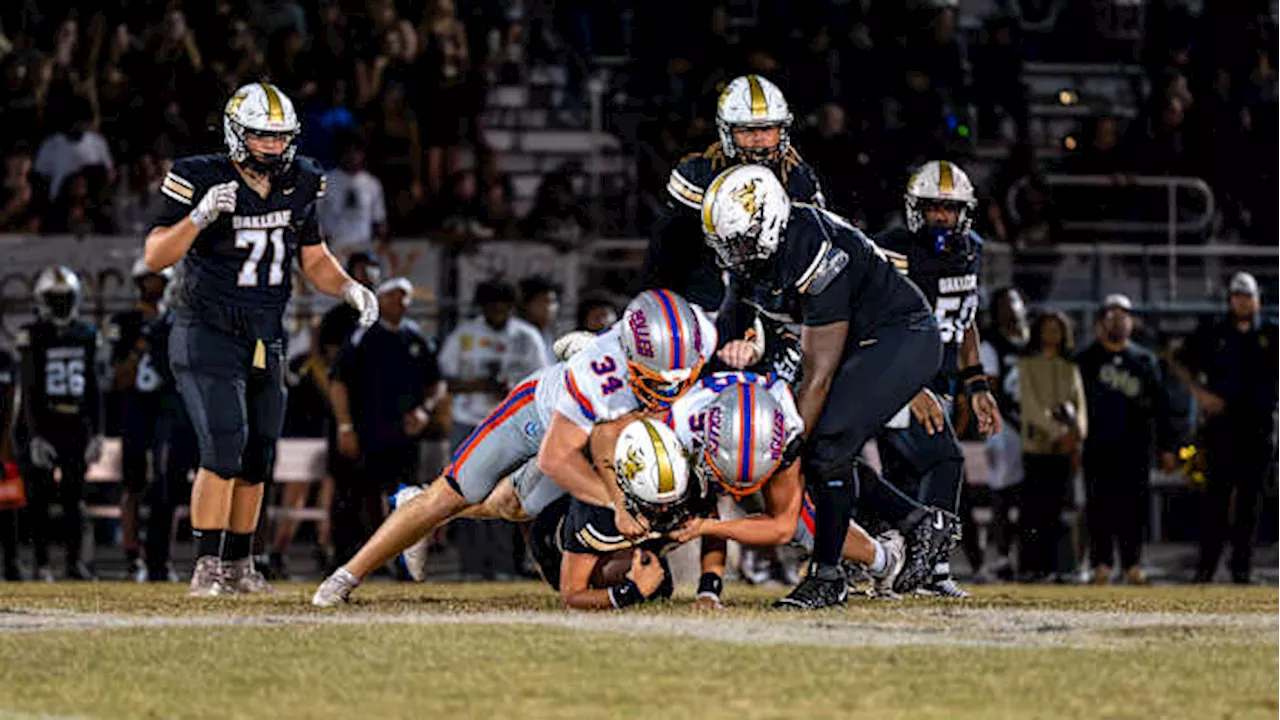UPDATE: The Florida High School Athletic Association (FHSAA) board just approved a new football classification and playoff format, maintaining the existing structure for the next two years while introducing significant changes. The decision, made during a critical board meeting on October 30, 2023, passed by a 10-3 vote and aims to balance competitiveness while keeping options open for future improvements.
This measure primarily retains the current classification system but reduces the number of classes by one. Schools will still be required to engage in district play, with district champions automatically qualifying for the state series playoffs. The board has committed to using rankings points for determining at-large berths, which has sparked debate among coaches and school administrators.
The new structure also introduces the possibility of a Florida Invitational Tournament (FIT), allowing schools with lower competitive chances to participate in an invitational-style event instead of the main state series playoffs. This aims to create a more equitable environment for teams that struggle against powerhouse programs like Bolles, Mandarin, Raines, and St. Augustine.
FHSAA Executive Director Craig Damon emphasized the importance of this flexible approach, although many coaches expressed concerns about the rapid pace of change.
“We don’t want to make a decision that forces people out,”
said FHSAA board member Bobby Johns, highlighting ongoing disagreements about the classification process.
The board’s decision comes as many schools have voiced frustrations with the current system, especially regarding enrollment numbers used for classification. Critics argue that Florida’s open enrollment policies render this method obsolete. The new plan is set to affect team placements before the start of the 2026 season, allowing the FHSAA to finalize classifications in a timely manner.
The FHSAA’s commitment to maintaining district tournaments, particularly in the top four teams, remains a contentious issue. Advocates for mandatory games argue that they reduce scheduling headaches for stronger teams, while others contend that they lock schools into competitive mismatches.
The meeting, which lasted over three hours, saw passionate discussions among coaches. Ty Lawrence from South Sumter expressed his concern over the speed of proposed changes, calling them potentially reckless. Others voiced similar sentiments, noting the lack of clarity surrounding the FHSAA’s rating system, which many find confusing.
As this story develops, the FHSAA will continue to explore ways to address these challenges, focusing on creating a competitive yet fair playing field for all student-athletes.
Stay tuned for more updates on how these changes will impact Florida high school football and the broader implications for student participation and tournament structures.







